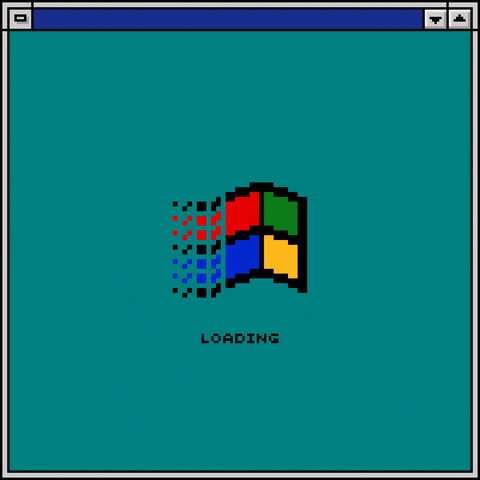Taking on new tech can feel like more work—more skills to learn, links to click, and things to keep track of. This can be especially true in the already-busy field of talent acquisition. With the help of smart recruiting technology, though, life gets easier (instead of just more complicated).
In this post, we’ll explore four major benefits of using smart recruiting technology…and why you’ll never want to go without again.
What is smart recruiting technology?
We know that talent acquisition is one of the most important roles in the HR department. Recruiters have a range of responsibilities—they handle everything from posting jobs, screening applications, delivering interviews, hosting events, and onboarding new hires.
Smart recruiting technology is the umbrella term for tech that has evolved to meet the recruiter’s needs using machine learning, artificial intelligence (AI), and natural language processing (NLP). AKA: they’re digital tools used by recruiters to work more effectively.
Before smart recruiting technology
How did recruiters attract talent before smart recruiting technology? It wasn’t long ago, really, that talent acquisition didn’t have the benefit of software. The use of AI in recruiting is relatively new—even chatbots (as we understand them today) weren’t available until 2001.
While the tech might be new, recruiting isn’t taking advantage of AI at the same rapid pace as other fields of work. Because of this, many talent acquisition teams don’t have the technological support they need to do their jobs well. They aren’t meeting the expectations of their potential candidates and they’re falling behind.
So, what are too many recruiters doing instead? In a word (or two): going slow. Without the help of the right software to assist the hiring process, HR professionals have to manually screen each applicant. They need to manage interview scheduling and candidate communications, sort and store candidate data and paperwork, and conduct manual reference checks.
Doing those tasks for each applicant, for each job opening, takes time. A lot of time. Especially if each job opening is met with hundreds of applications.
Doing work manually, instead of using smart or automated recruiting technology, is not the way to attract and hire the best talent. It’s not efficient and it’s not cost effective. It’s not the way of the future.
How is recruiting changing?
Today’s candidate driven market has a huge influence on the recruitment process—job applicants have become consumers. Top talent has the choice of where they’d like to work, and some potential candidates won’t even apply to jobs that aren’t marketed directly to them. With that in mind, tailoring recruitment efforts to meet the needs of desirable candidates should be a priority.
And those applicant needs are evolving. It’s becoming more common for potential hires to want to join companies that are transparent and trustworthy, value diversity, and take advantage of modern technology. They want an interview experience that values them and makes them feel connected.
When the pandemic changed the landscape of work, it changed recruiting too. Many people began working from home when COVID-19 restrictions went into effect, and hybrid work is still popular now. Job seekers want that same flexibility when going through the interview process.
Recruiters are also now expected to reduce their time to fill. Speeding up the recruitment process (while maintaining candidate quality) has become essential to improving candidate experience, increasing recruiter effectiveness, and saving money.
Are there drawbacks to smart recruiting technology?
Smart recruiting technology can help hiring teams make unbiased hiring decisions. However, the AI algorithms have to be programmed properly for them to serve their purpose. If programmers aren’t careful, new technologies can perpetuate old biases.
Whenever old hiring decisions were made based on interviewer bias—towards or against a certain gender, race, ethnicity, economic status or sexual orientation—and that same data gets used to program recruiting algorithms, AI can learn those same behaviors. Companies that use AI to support hiring decisions should be aware of this possibility and train their technology to override any bias.
Some people are also concerned that allowing software to gather applicant data and assist decision-making puts security and privacy at risk. To combat this, interview platforms should prevent unauthorized access, encrypt data, and follow strict information security policies.
It’s best practice to keep in mind that smart recruiting technologies are only tools. They aren’t meant to replace human decision making, but support it. Hiring teams that use technology to do their jobs should remember, too, that job applicants aren’t just aggregates of data points. HR professionals cannot rely so heavily on AI and machine learning that they forget to connect with their candidates as people.
What kinds of smart recruiting tools are available?
Smart recruiting tools come in many shapes, sizes, and platforms. Some recruiting platforms offer several tools at once, while some offer one service at a time. Here are a few:
- Chatbots. One of the first applications of AI, chatbots use NLP to communicate with users. They make candidates feel connected throughout the interview process and give applicants a place to ask straightforward questions.
- Virtual assistants. Think Siri, Alexa, or Cortana. Virtual assistants used by recruiters can help to manage scheduling or organize candidate data.
- Job aggregator sites. Sites like Glassdoor or Indeed use algorithms to connect potential candidates with jobs that match their skills. Today, it’s more common for job seekers to find open positions through these sites than by word of mouth or on business websites.
- Talent management systems. Applicant Tracking Systems (ATS) use technology to manage the application process—they can manage anything from screening to scheduling. Candidate Relationship Management Systems (CRM) help recruiters proactively maintain connections with potential talent (past, present, and future).
- Automated recruiting software. This kind of software serves hiring teams by taking manual recruiting tasks and streamlining them. It can do anything from automatically sharing posts to social media, uploading job descriptions, or screening applications.
- Video interviews. Not all interviews need to be in person—interviews can take place virtually. Using specialized intelligent interview platforms can even help recruiters conduct better video interviews and make smarter hiring decisions.
Clearly, there are many use cases for smart recruiting technology. It’s only a matter of deciding what kind of software will set your hiring team up for success.
Four benefits of smart recruiting technology
Now that you know what smart recruiting technology is, how can it help your business? While there are many benefits, here are the top four:
1. Faster hiring
Technology has sped so much up—everything from communication, to travel, to entertainment—that the hiring process should be no different. Because of this, reducing time to hire is a major focus of many hiring teams today. Recruitment software can help companies achieve those goals.
When a multitude of applications stream in, recruiting technology can help identify the most qualified candidates quickly using resume screening tools. This gets the best candidates to their interviews in a shorter amount of time.
Using software to keep your brand connected with your talent pool will reduce the time spent sourcing candidates. Recruitment software can share drip campaigns, send personalized communications to an email list, or keep up with social media platforms. When you can foster relationships with qualified applicants they’ll trust your business enough to apply as soon as jobs become available.
Data confirmation and reference checking is faster with the right software too. Tasks that can be automated, instead of done manually, will save the recruiter time and shorten the overall interview process. And the shorter the interview process is, the sooner new hires can start bringing their skills to your company.
2. Easier hiring
Job applicants appreciate a straightforward application and interview process. The right technology can simplify the hiring experience by providing a modern platform for submitting applications, storing important files, and scheduling interviews. Ultimately, this benefits hiring teams too.
Recruitment tools that support video interviews also make hiring easier. Conducting interviews virtually makes for a more flexible and positive experience for everyone involved—which is especially important now that so many people now work from home.
Some platforms make conversations amongst the hiring team easier too. Sharing interview notes, highlights, and candidate files digitally streamlines the decision making process and keeps everyone involved with minimal effort. With the ability to communicate effectively, making good hiring decisions is much simpler.
With the help of smart recruiting technology, recruiters don’t need to manually share content on various networking sites, post job openings to websites, or send individualized email messages to talent. Technology frees the recruiter up to do the job they were meant to do—find and hire the right candidates with less effort.
3. Better candidate experience
Smart recruiting technology doesn’t just benefit recruiting teams—it makes the candidate experience better. The stakes are higher than employers might realize—according to one survey, nearly half of candidates have turned down job offers after a poor recruiting experience. You wouldn’t want a bad first impression to cost your company great talent, right?
Candidates expect a hiring process that is modern, transparent, and is respectful of their time. The smoother the recruiting process runs, the less likely they are to drop out. Right from the start of their job-seeking journey, candidates are looking for applications that are easy to fill out (mobile device-optimized is best!).
Especially important is clarity—applicants want a shared understanding of interview timelines and potential job expectations.
Applicants also appreciate the consistency and ease of communication that smart recruiting technology allows for. Teams that use smart tech to communicate with potential talent can also help them feel more connected as they navigate the interview process.
4. Better hires
Using technology doesn’t take the place of the hiring team, it helps the team make smarter decisions. With recruiting, screening, and interview tools, AI can help to match the best candidates to open roles and even help predict an employee’s success.
Smart recruiting tools help reduce bias in the hiring process too. The right tools can do anything from eliminating gendered language in job postings to providing standardized interview questions.
AI can also provide measurements of interviews or resumes to help support the hiring process with data. Decisions are based in fact, not just feeling, and recruiters can rest assured that they are accurately assessing candidates. Some tools use NLP to analyze interviews, and some support hiring teams with candidate scoring tools. With that, the math is simple—accurate assessments = better hires.
You don’t want to find good candidates, you want great ones. Smart recruiting technology helps bridge the gap from good to great.
Smart recruiters use smart recruiting technology
Enhance your recruiting, interviewing, and hiring with the right technology. Using intelligent interview solutions like Clovers is a great way to get the best candidates on your team. Sign up for your trial today for faster, easier, and smarter hiring.




